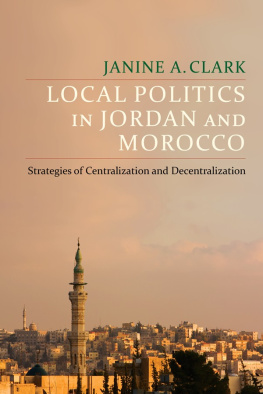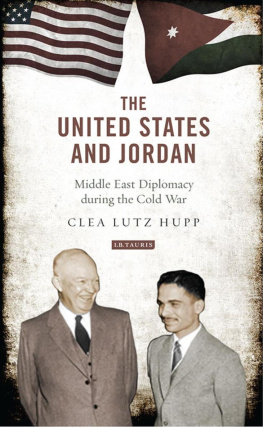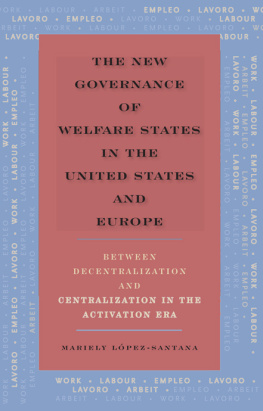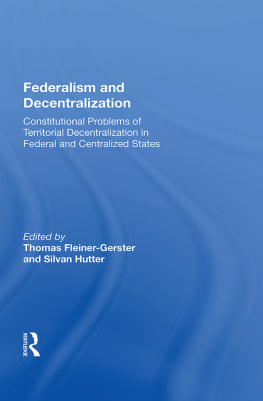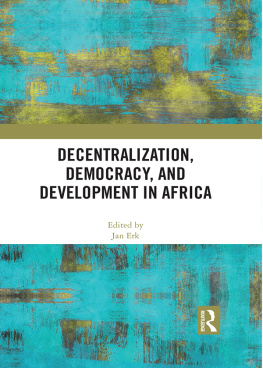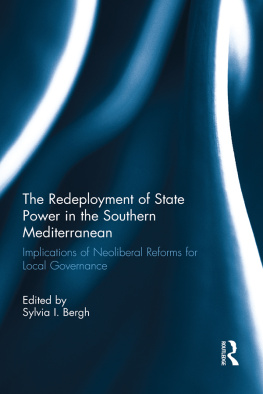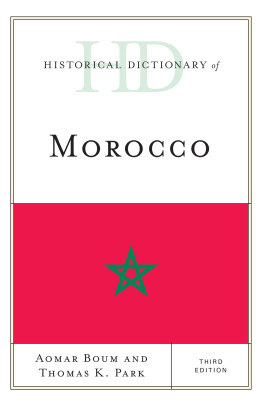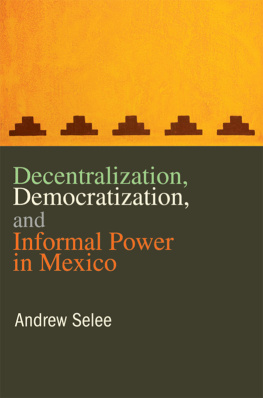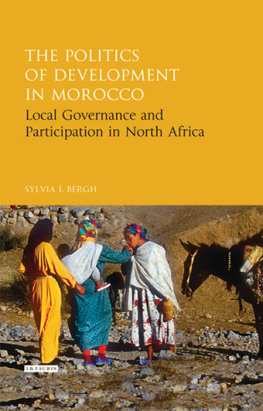COLUMBIA STUDIES IN MIDDLE EAST POLITICS
Marc Lynch, Series Editor
Columbia Studies in Middle East Politics presents academically rigorous, well-written, relevant, and accessible books on the rapidly transforming politics of the Middle East for an interested academic and policy audience.
The Arab Uprisings Explained: New Contentious Politics in the Middle East , edited by Marc Lynch
Sectarian Politics in the Gulf: From the Iraq War to the Arab Uprisings , Frederic M. Wehrey
From Resilience to Revolution: How Foreign Interventions Destabilize the Middle East , Sean L. Yom
Protection Amid Chaos: The Creation of Property Rights in Palestinian Refugee Camps , Nadya Hajj
Religious Statecraft: The Politics of Islam in Iran , Mohammad Ayatollahi Tabaar
Columbia University Press
Publishers Since 1893
New York Chichester, West Sussex
cup.columbia.edu
Copyright 2018 Columbia University Press
All rights reserved
E-ISBN 978-0-231-54501-3
Library of Congress Cataloging-in-Publication Data
Names: Clark, Janine A., author.
Title: Local politics in Jordan and Morocco : strategies of centralization and decentralization / Janine A. Clark.
Other titles: Columbia studies in Middle East politics.
Description: New York : Columbia University Press, 2018. | Series: Columbia studies in Middle East politics | Includes bibliographical references and index.
Identifiers: LCCN 2017031563 | ISBN 978-0-231-18358-1 (hardcover : alk. paper) | ISBN 978-0-231-54501-3 (e-book)
Subjects: LCSH: Municipal governmentJordan. | Decentralization in governmentJordan. | JordanPolitics and government. | Municipal governmentMorocco. | Decentralization in governmentMorocco. | MoroccoPolitics and government.
Classification: LCC JS7503.3.A3 C58 2018 | DDC 320.8095695dc23
LC record available at https://lccn.loc.gov/2017031563
A Columbia University Press E-book.
CUP would be pleased to hear about your reading experience with this e-book at .
Cover design: Milenda Nan Ok Lee
Cover image: istockphoto
T his book was a long time in the making and I owe thanks to the numerous people both at home and abroad who gave me their support, advice, and suggestions throughout the researching and writing process. To everyone, I am deeply indebted. To begin with, this book would not have been possible without the Social Science and Research Council of Canada, which provided the funding for the project. I also owe thanks to my colleagues who helped me in conceptualizing, writing, and revising the research proposal for this project: Jordi Diez, Candace Johnson, and Craig Johnson. Without their help this project never would have materialized. I am particularly grateful to Jordi for his ongoing guidance. I also want to thank my former department chair, Byron Sheldrick, for ensuring that I had the flexibility in my teaching schedule to be able to do the field research.
I owe my deepest thanks to the mayors, municipal councillors, and party leaders, as well as NGO representatives, in all the municipalities I visited throughout Jordan and Morocco. They are the heart and the soul of this book. Research trips took me to parts of Jordan I had never seen before, and to those far from any tourists list of places to visit. I have to thank all those I met in each of the municipalities for making me fall in love with Jordan all over again. I was overwhelmed with the generosity of everyone I interviewed as they drove me around to some of the stunningly beautiful hidden corners of their municipalities, showed me their development projects, and invited me to their homes for lunch. My same thanks go to all those I met in Morocco for not only going out of their way to facilitate my research but for the warm and truly wonderful introduction they provided me to the country.
I conducted the numerous interviews for this book both on my own and with research assistants. I also had research assistants conduct some of the interviews on my behalf. In Jordan, I especially want to thank Hilda Ayoub and Ola Farawati, each of whom drove with me all over Jordan and joined me in the interviews. Hilda also kindly did some important translations of secondary materials for me. Both played indispensable roles in helping facilitate the interviews, breaking the ice with those we met, and translating some difficult dialectsespecially those of some of the other visitors with whom we found ourselves in the mayors offices (sometimes barging into them), there to complain, for example, about road salting (one citizen was insulted the municipality salted the road in front of his home; he felt it was his own responsibility) or road paving (another citizen demanded that a road be paved precisely because he knew it would lower his brothers home value!). I cannot thank Ola and Hilda enough for all the laughter we had driving long hours and discovering new parts of the country.
Most especially I want to thank Mohammad Yaghi, who conducted interviews on my behalf in Jordan. No doubt his success in all his interviews was due to his patience, kindness, and empathy. I am incredibly grateful for the excellent work he did for me in the field but also for the analysis he provided me of the interviews and for the many discussions we had of my research and of Jordan. Mohammad also conducted a thorough review and analysis of secondary materials in Arabic. His efforts and input were a vital part of this book.
Many others also helped make the interviews possible. Nart Bakir, then at the Ministry for Municipal Affairs, provided me with the ministrys list of municipalities, including telephone numbers. He also kindly engaged in ongoing discussions regarding municipal politics with me. I also would not have started off on a very sound footing if it had not been for Ella Gao and Stephanie Nanes, both of whom were in Amman doing research on local politics during my first field trip. They were extremely generous with their contacts and advice. Ella helped me narrow down which four municipalities I would look at in a more in-depth manner. I also owe thanks to Glen Robinson and Kenneth Ellison; well before I arrived in Jordan, they provided me with a wealth of information on decentralization efforts, municipal strengthening projects, and local contacts.
Others generously and helpfully shared their expertise and time with me in Jordan. I am especially indebted to Myriam Ababsa, Shehada Abu Hdeb, Hussein Abu Rumman, Nidal Adwan, Adnan al-Bakhit, Rami Daher, Mustapha Hamarneh, Hesham Hejaya, Hani Hourani, Mohammad al-Masri, Walid al-Masri, Musa Shtewi, and Tariq Tell. I also cannot forget Omar Abu-Eid, Jamie Allinson, Jocelyn deJong, Joud Khasawneh, Mohammad Kholi, Jihad Mansi, Paul McCarthy, Jamil Nimri, Natasha Shawarib, Mohammad Taamneh, Abdul Razak Tubaishat, and Imam Zaki.
Chris Parker and Jillian Schwedler helped me with the early stages of conceptualizing and formulating my ideas. I also owe thanks to Chris for his encouragement when my energy for fieldwork was flagging. Sylvia Bergh provided an invaluable learning experience at the Twelfth Mediterranean Research Meeting in 2011. Michel Caron, Luna Khirfan, Nadine Kreitmyer, Fuad Malkawi, and Basma Momani provided help along the way. Many thanks also are due to Barbara Porter, Nisreen Abu al-Shaikh, Humi Al-Ayoubi, Sarah Harpending Burgan, Kathy Nimri, Chris Tuttle, and Karen Britt for making my time at the American Center of Oriental Research (ACOR) so enjoyable and productive. The Huneidi and the Abdel Jaber families, Olas family, and Maya Abu Ayyash were hospitable and wonderful. It is hard to think of Jordan without immediately thinking of them.

